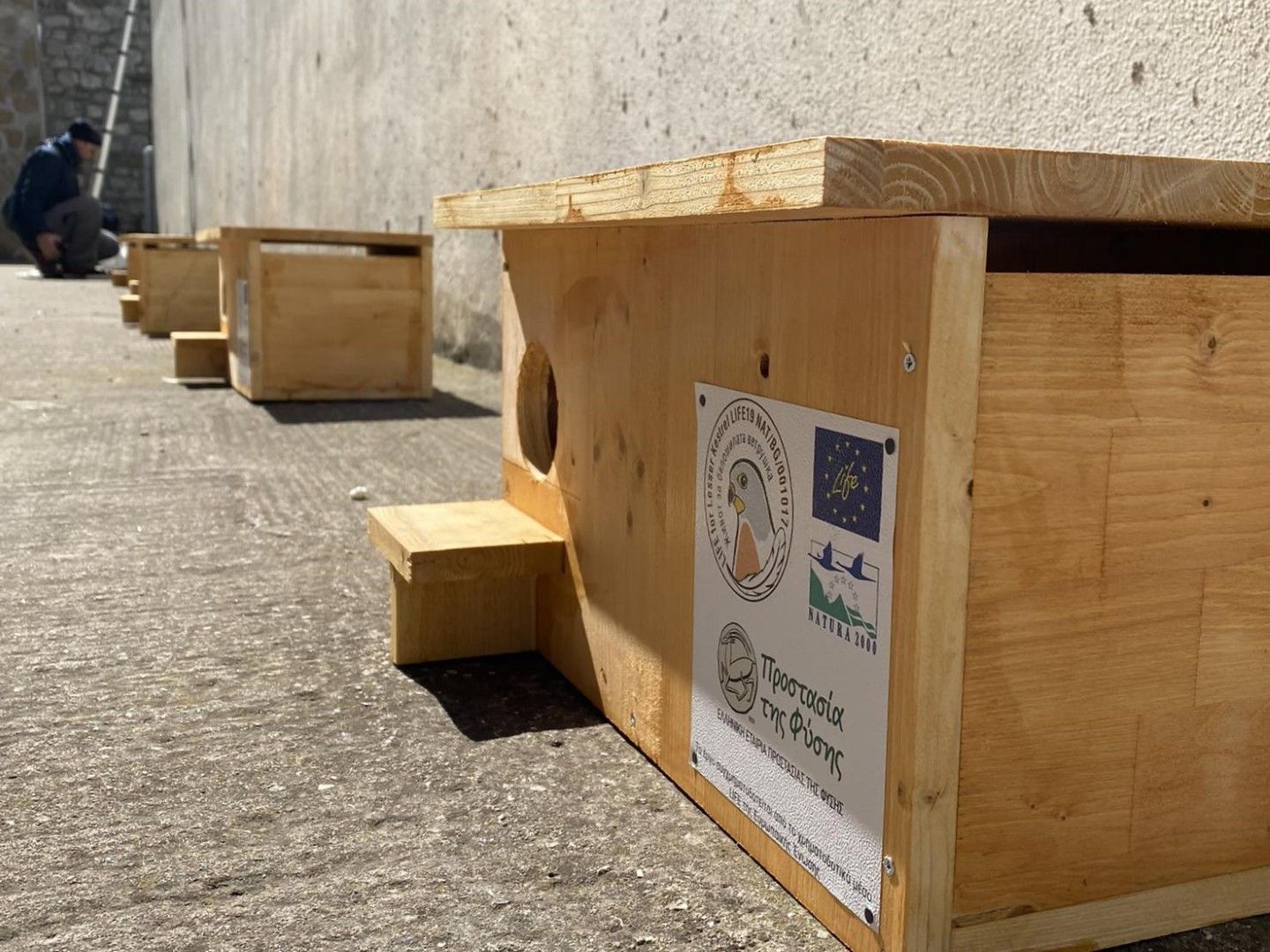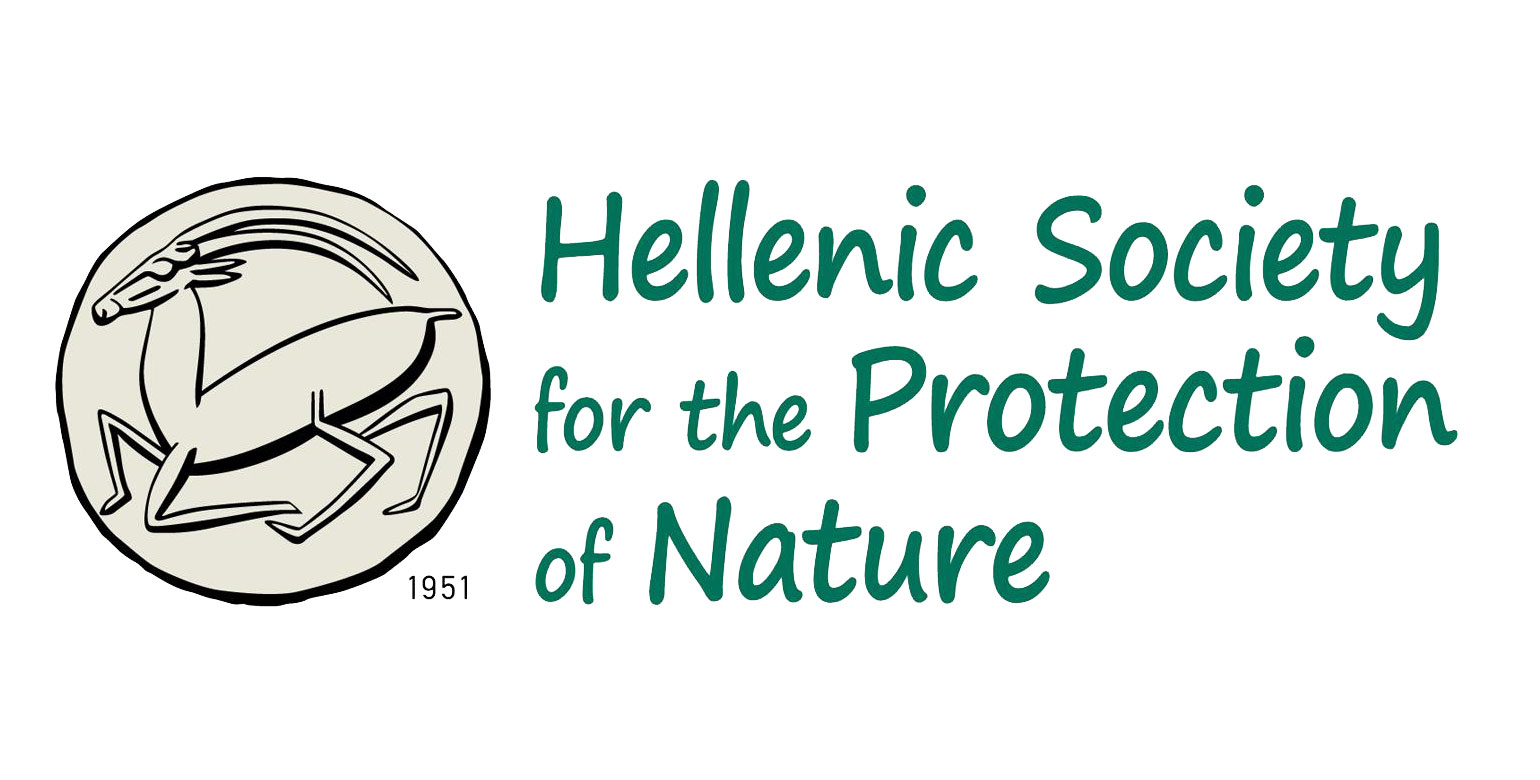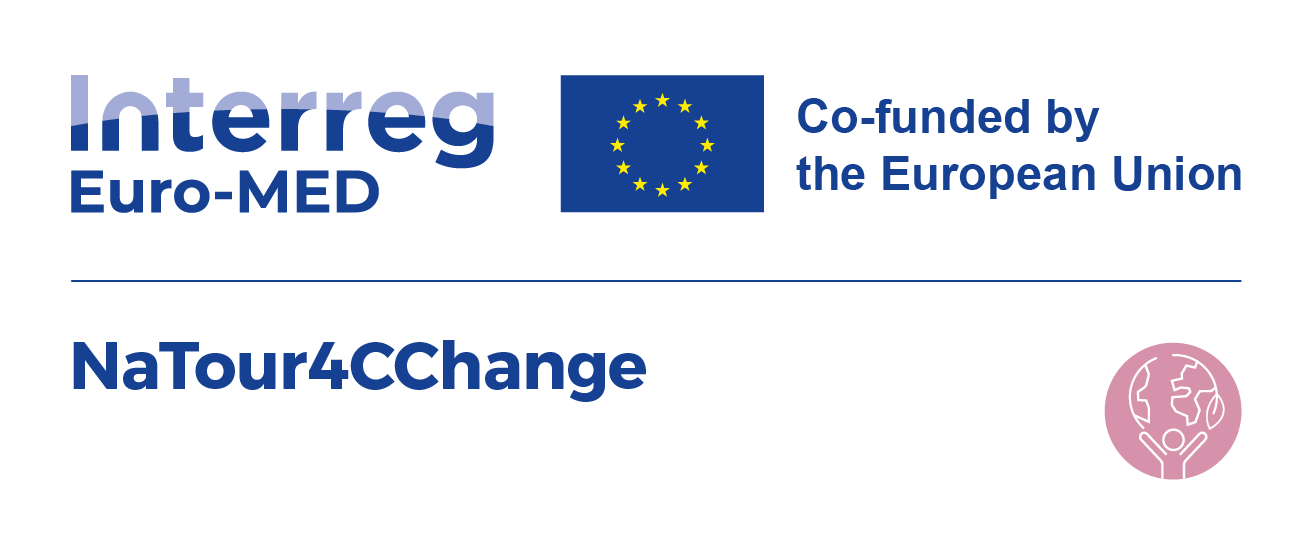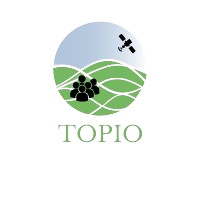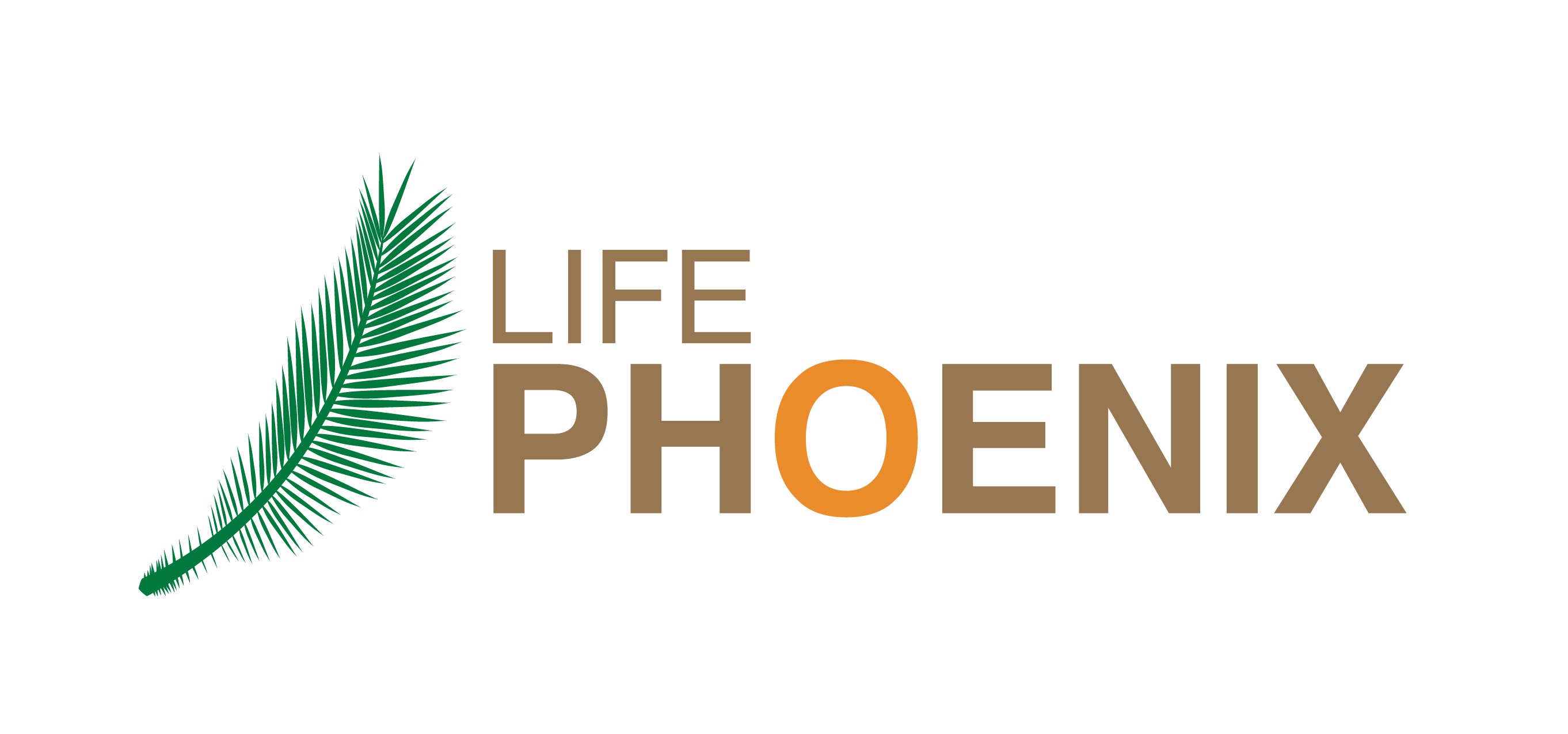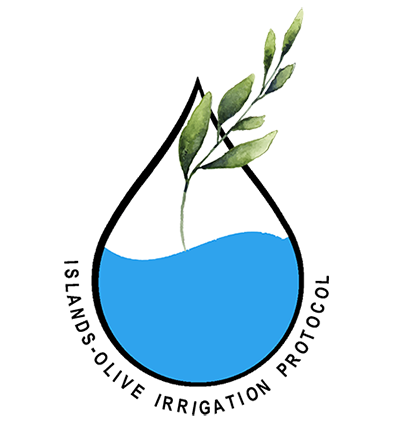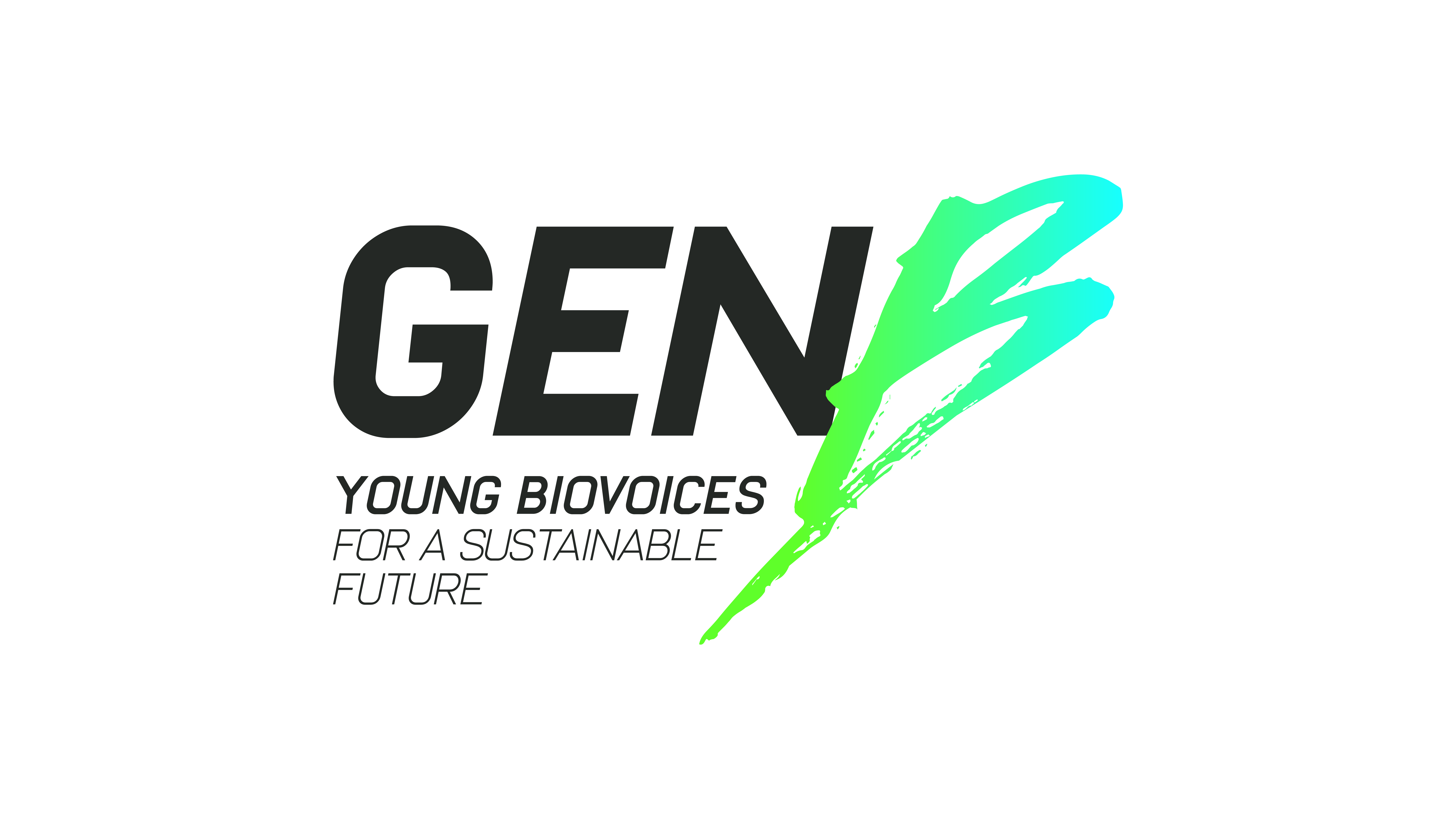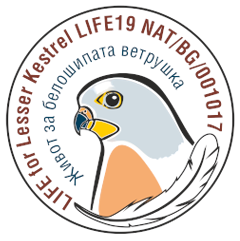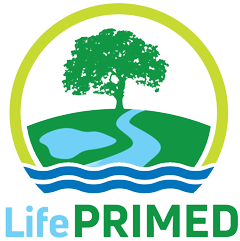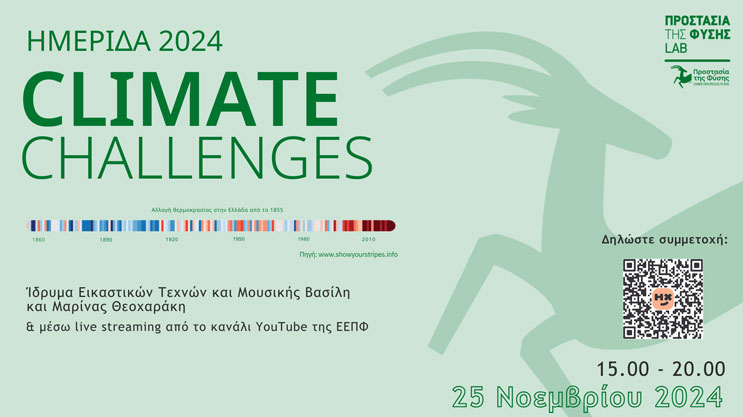Interreg Euro-MED NaTour4CChange
The HSPN participates in the NaTour4CChange project, within the framework of Mission 4 - "Enhancing Sustainable Tourism" of the European Programme Interreg Euro-MED. The aim of the project is to strengthen the governance of sustainable tourism in areas of high environmental value, by reconnecting tourism and nature to address climate change through an ecosystem-based approach. NaTour4CChange builds on successful Mediterranean and global level projects and the application of nature-based solutions to improve the resilience and adaptation of Mediterranean coastal destinations to climate change.
In particular, the objectives of the project are:
- Improving the sustainability and resilience of Mediterranean coastal destinations
- Enhancing the capacity of regions in the governance of tourism at local level
- The use and evaluation of targeted ecosystem-based approaches
- Exploiting the dual role of nature as:
1. tourism attraction
2. a means of enhancing the resilience of destinations.
The project is coordinated by the Institute for Tourism (IFT) in Croatia and involves a total of 10 partners from 6 Mediterranean countries, namely the Region of Crete (Greece), the Autonomous Region of Andalusia (Spain), the Autonomous Region of Sardinia (Italy), Natura-Jadera Region (Croatia), Neretva-Canton Region (Bosnia and Herzegovina), IUCN-Med (Spain), CPMR (France), Plan Bleu (France) and the Hellenic Society for the Protection of Nature (Greece), as well as 18 associate partners. The project also includes 6 pilot sites in 6 different countries (Greece, France, Italy, Italy, Spain, Croatia, Bosnia-Herzegovina). The total budget of the project is € 3.000.000 (80% financed by European funds from the Interreg programme) and the expected duration of the project is 33 months.
The expected results of the project include:
- 5 Regional Strategies for the Coastal Tourism sector to address and adapt to climate change
- 6 Destination Climate Action Plans for the Coastal Tourism sector
- Capitalisation Report describing the overall approach to planning for enhancing the resilience of the tourism sector to climate change
- 6 Reports on the testing of nature-based solutions in the pilot destinations.
More information on the official project website: https://natour4cchange.interreg-euro-med.eu/
Co-funded by the European Union. Views and opinions expressed are however those of the author(s) only and do not necessarily reflect those of the European Union or of the granting authority. Neither the European Union nor the granting authority can be held responsible for them.
HORIZON-MSCA TOPIO
The HSPN is participating in the 4-year project “TOPIO-Towards Democratic Landscape Observation Through Geoinformatics and Public Participation” in the framework of τηε HORIZON - MSCA programme. The project aims to give citizens an active role in landscape decision-making through citizen science, geoinformatics (earth observation and GIS), artificial intelligence and public participation to promote sustainable development of the region.
In particular, it seeks to:
- Position landscape as a key concept for addressing broader challenges within international frameworks, such as the Faro Convention Plan, the Aarhus Convention, the UN Sustainable Development Goals, the EU Green Deal, etc.
- Provide innovative, international, interdisciplinary, and cross-sectoral training for TOPIO partners, based on training and mobility activities, in a number of different disciplines.
- Achieve advanced innovation and capacity building through the development of a research and training network, focusing its activities on the development, effective integration, and increased exploitation of the existing and emerging landscape through monitoring techniques.
- Enhance the socio-cultural and environmental dimensions of the landscape and its role in defining operational and integrated frameworks that support sustainable development at local and regional level.
- Exchange information on landscape policies and people's experience of landscape protection, management and planning, public participation and implementation at different scales and levels. This will be achieved through the implementation of Landscape Characterisation Assessment methodologies in seven European countries.
The project is coordinated by the Foundation for Research and Technology-Hellas (FORTH); co-beneficiaries include HSPN and Geosystems Hellas S.A. (Greece), the NGO Association of the Instituto Superior Técnico para a Investigação e Desenvolvimento (Portugal), J&G Engineering & Architecture E.P.E. (Cyprus), the University of Ghent (Belgium), the University of Seville (Spain), the GEO University of Tallinn (Estonia) and the University of Sapienza of Rome (Italy).
More information on the official project website: https://topioproject.eu/
LIFE PHOENIX
The HSPN participates in the five-year project “Restoration and improvement of Priority Habitat 9370* Palm groves of Phoenix - LIFE PHOENIX-”, which aims to improve the conservation status of Priority Habitat 9370* in the Gran Canaria Island and Crete.
In particular, it seeks:
- The development of an integrated strategy that will include mitigation of the main generic risks, such as drought, forest fires, overgrazing, visitor/anthropogenic pressures, hybridization.
- The restoration of naturally occurring palm trees through appropriate management techniques.
- The prevention and control of pests and IAS.
- The successful reforestation, environmental governance and awareness raising.
The intervention rational of LIFE PHOENIX is based on providing strategic conservation action lines for each of the threats identified in both countries, including a number of cross-cutting actions (e.g., habitat restoration and reforestation, governance, awareness raising) that will help to minimise several threats simultaneously.
The project is coordinated by the Spanish GESPLAN; co-beneficiaries include HSPN, the Ministry of Environment and Energy, the University of Crete, and Homeotech in Greece, and from Spain the Cabildo de Gran Canaria, the General Directorate of Agriculture and Rural Development, the Institute of Agricultural Research of the Canary Islands and the University of Las Palmas of the Canary Islands in Spain.
For more information visit the project website.
Funded by the European Union. Views and opinions expressed are however those of the author(s) only and do not necessarily reflect those of the European Union or of the granting authority. Neither the European Union nor the granting authority can be held responsible for them.
I.Ο.S.P.
The HSPN participates in the 4-year project " Agricultural practices protocol in olive cultivation of island regions, specifically in Lesvos and Crete islands, for water efficiency and addressing reduced productivity", funded by the Rural Development Programme (NSRF 2014-2020), which aims to contribute significantly to the more efficient use of irrigation and to support the transition to a climate change resilient agriculture.
In particular, it seeks to:
- the creation of a protocol, which will be implemented through the development of specific software, delivering a dual objective:
- the management of reduced reserves and low quality of irrigation water in the Aegean Island region,
- addressing the reduced productivity in olive cultivation through the application of good agricultural practices.
The project is coordinated by the Hellenic Agricultural Organization "DEMETER" (HAO - DEMETER) - Institute of Olive, Subtropical Plants and Vine; co-beneficiaries include HSPN, the Institute of Soil and Water Resources (HAO - DEMETER), the Union of Agricultural Cooperatives Meramballou S.A., SCIENTACT S.A., MODOUSA S.A., and Tepes Farm.
GenB
The GenB project aims to educate and empower Generation Bioeconomy (GenB), which is informed, aware and interested in environmental issues, sustainability and circularity.
In particular, it seeks to:
- Co-create innovative approaches, materials and tools to provide educational and information tools on the bioeconomy through collaboration between children, young adults, parents, teachers and other representatives of formal and non-formal education,
- Raise awareness among pre-school, primary and secondary school students about the environmental, social and economic benefits of a sustainable and circular bioeconomy,
- Increase the interest of younger generations in education and training in life sciences, technology and the bioeconomy
- Empower young people to take an active role in order to accelerate the transition to more sustainable behaviours, consumption patterns and lifestyles.
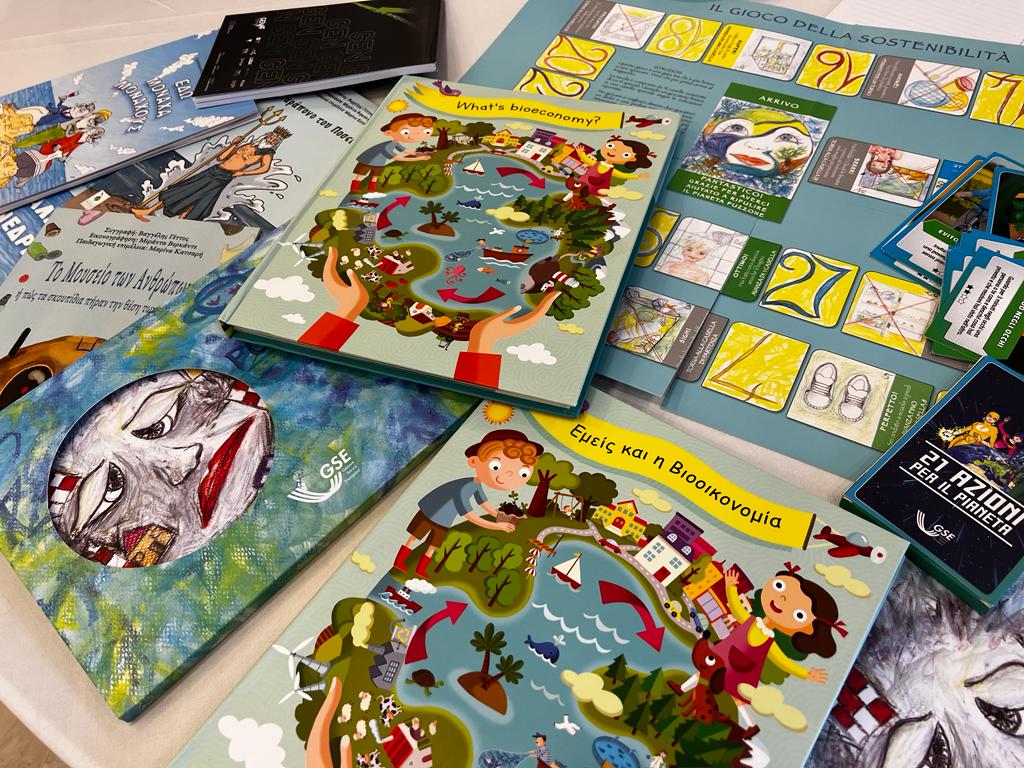
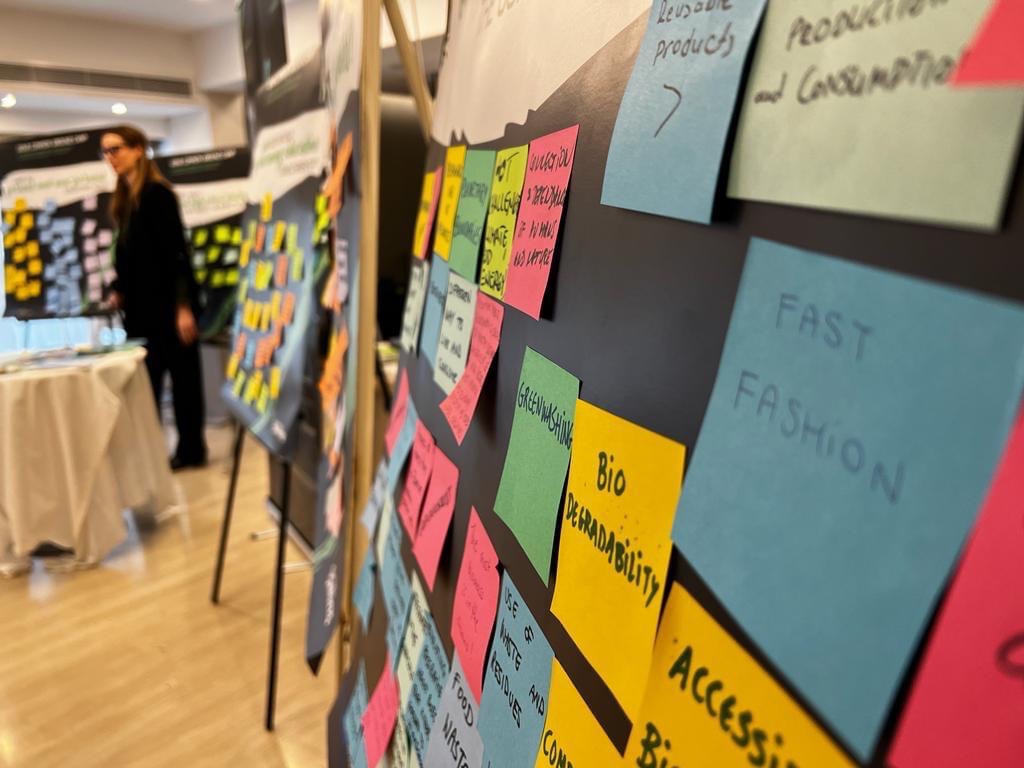
GenB, which started in November 2022, is a 30-month project funded by Horizon Europe, the European Union's research and innovation funding programme.
The project is coordinated by the Agency for the Promotion of European Research (APRE) (Italy). In addition to the Hellenic Society for Nature Conservation, BTG (The Netherlands), LOBA (Portugal), PEDAL (Slovakia), EUN (Belgium), ZSI (Austria), AIJU (Spain), Q-PLAN (Greece), FVA (Italy) are participating in the project.
For more information visit the project website
LIFE for Lesser Kestrel
The Project LIFE19 NAT/BG/001017 ”LIFE for Lesser Kestrel” is co-financed by the European Union Life Financial Instrument. This 5-year project targets the Lesser Kestrel (Falco naumanni), included in Annex I of the Birds Directive and in the Ornis Committee list of priorities birds. The project’s targets are the connection of all the subpopulations in Greece and Bulgaria and an overall increase and improvement of the species’ status in the South East Balkans. The overall goal is to expand the nesting distribution of the species ensuring the existence of independent colonies. The existence of at least two linked population cores in the project countries is a prerequisite for survival if an accident, illness, predator attack, natural disaster, etc. occurs in one of the subpopulations. It will aid the propagation of the birds in a wider area and will improve the conditions for future natural recolonization of the species from restored/established colonies. Key objectives are: to halt the decline and improve the species conservation status not only in Bulgaria and Greece (especially in NATURA 2000 sites), but also in the entire southeastern Balkans; to stabilize and strengthen the newly established Lesser Kestrel colony in Bulgaria; to assist the natural expansion and recolonization; to gather data and assist the conservation of the scattered colonies in different countries in the southeastern Balkans; to demonstrate and further encourage sustainable arable land management of key Lesser Kestrel foraging habitats; to replicate, further develop and improve the best Lesser Kestrel reinforcement practices in Bulgaria and Greece, transferring experience of other EU countries and LIFE projects. The coordinating beneficiary is Green Balkans (Bulgaria) and the partners are HSPN and University of Thessaly (Greece).
For more information visit the project website
LIFE PRIMED
The Project LIFE17 GIE/GR/000511 ”LIFE PRIMED” is co-financed by the European Union Life Financial Instrument. The HSPN is the coordinating beneficiary of this 5-year LIFE+ project for the protection of priority habitats and species in two Natura 2000 sites, one in northern Greece (Nestos Delta), and another in central Italy (Palo Laziale). Goals include conservation and restoration of riparian forests and Mediterranean temporary ponds, protection of priority fauna species, support of local producers, and promotion of ecotourism. The other beneficiaries are the Institute for Mediterranean Forest Ecosystems, and the Management Body of Nestos-Vistonida-Ismarida and Thasos from Greece, and the Sapienza University of Rome and ARSIAL from Italy.
For more information visit the project website



